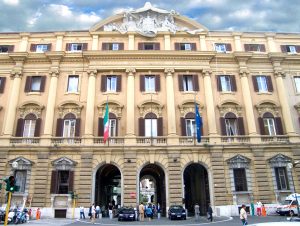The Ministry of Environmental Protection and Regional Development of the Republic of Latvia (VARAM) is responsible for implementing policy in three areas – environment protection, regional development, as well as information and communication technologies. VARAM implementation of the broad e-Governance policy includes the establishment of State and Municipal Unified Customer Service Centers (CSCs) for provision of state and local government services and implementation of modern and effective information and communication technologies in the public sector.
CSCs are established one-stop shops (centric service delivery model) where citizens or legal persons can submit their requests (claims) to public law bodies and obtain the requested service – allowances, tax declaration submission, etc.
The network of CSCs operates across Latvia, where, through cooperation between National and Local Governments, unified and digitalized services of main public service owners are available. The network has proven itself to be an effective eGovernment channel for providing services to the part of the population that must be encouraged to use (more) digital services.
The goal of VARAM CSCs use case is to test sharing service delivery with third parties to increase citizens’ trust and willingness to use public services; to improve service quality and inclusiveness by directly addressing end-users needs not only from government’s and municipal perspective, but also by non-governmental entities, local communities, or professionals; to reduce the administrative burden by outsourcing CSCs functions.
CSCs will be selected according to internal criteria (e.g., number of clients, time of the establishment of CSC, municipal/regional level) and project requirements (e.g. overlap and harmonization with other use -cases,
technological framework). This phase will include environmental analysis to identify potential third parties in each municipality that could co-deliver public services and to identify citizens’ needs and requirements
regarding new services in their municipality.





